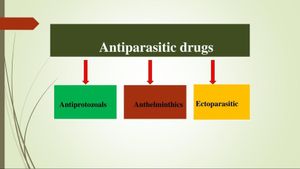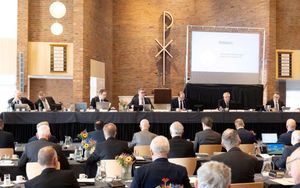SUMNER, Wash. — A jury found Jacob Jackson, the former head coach of the Sumner High School boys basketball team, guilty on 19 counts of sex crimes against multiple teenage players. The verdict was reached on Thursday after just one day of deliberation, and it saw Jackson convicted of serious charges including child rape, molestation, and sexual exploitation.
The allegations against Jackson came to light when Sumner police first launched their investigation after receiving reports about inappropriate communications between the coach and his players. The probe began on August 31, 2022, following parents' complaints about Jackson’s messages with their sons, some detailing inappropriate requests for explicit photos.
Between 2018 and 2022, Jackson was accused of grooming boys as young as 14, manipulating them in ways typical of predatory behavior. The jury heard from eight of Jackson's former players who testified against him. One victim, Jaxon Cummings, expressed relief following the verdict, stating, "It made me feel way more confident and way more safe." He described the overwhelming community support which helped him and others come forward.
Jackson had served as the head coach since 2016 and previously held assistant coaching positions. He was considered well-respected within the community and had led the team to its first state championship appearance in nearly 50 years. But beneath his respected veneer, prosecutors characterized Jackson as someone who exploited his position, using it as a means to prey upon vulnerable kids.
During trial proceedings, testimony revealed disturbing details of the relationships Jackson maintained with players, wherein he exchanged explicit messages and even photos, asking players to send 'progress pictures' and engage with him on sexually charged themes. Notably, one boy testified about being forced to take his penis out during inappropriate encounters.
Jackson's defense, which hinged on the assertion of his innocence, called the testimonies of the boys questionable, arguing the evidence was insufficient to corroborate their claims. Defense attorney Brett Purtzer claimed no explicit photos were ever found among the extensive evidence collected during the investigation.
The trial illuminated serious concerns around how school district officials and sports organizations responded to complaints about Jackson dating back to 2018. Evidence presented during the trial indicated there had been prior reports of inappropriate behavior made to both the Sumner-Bonney Lake School District and the Washington State High School Activities Association (WIAA), which were seemingly ignored.
Victims’ attorney Loren Cochran remarked on the prolonged hardship faced by the affected boys, noting, "Their fear this entire time was he would not be accountable. They’ve had to sit and wait." These sentiments reflect the broader issues of accountability within educational institutions when it concerns student safety.
After the verdict, community support for the victims was palpable, as many hailed the boys' courage for coming forward. Former coaches echoed this sentiment, stating, "The bravery and courage displayed by them is something we all can learn from. It should be noted if they had not come forward, countless victims would have continued."
Sentencing for Jackson is slated for March 20, where he could face substantial prison time. The results of this trial highlight not only individual accountability for Jackson, but also systemic failures within institutions meant to protect children. Survivors' calls for awareness and action resonate, underlining the necessity of vigilance against such predatory behavior.
Jackson's conviction is just one chapter in what advocates hope will be broader changes within sports and school environments, emphasizing the need for open communication and strict adherence to safeguarding protocols. While some community members felt relief at the verdict, discussions about ensuring future student safety are just beginning.
With the conclusion of this highly publicized trial, it remains to be seen how Jackson’s case will impact policies surrounding athlete safety and coaching conduct going forward. For advocates and survivors, the hope now lies not just in justice served, but also in actionable change to prevent similar tragedies from occurring.



